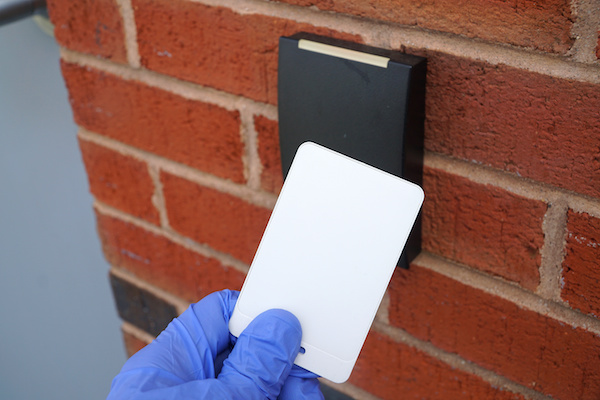
When you start the search for a company that will handle the day-to-day cleaning of your building, security concerns might not even cross your mind. After all, if you hire professionals, they’ll have protocols in place to keep your building and everything within it safe, right?
Not necessarily.
A janitorial service has access to just about every nook and cranny of your building, and they often work after traditional work hours when there’s no one around. Before you decide to sign with a service, do a little vetting to determine their commitment to security. You should hold your cleaning service to high standards in all ways, but security must be at the top of the list. One of the most important factors to consider is how they will handle security concerns, should they arise.
Ensuring that your facility will be safe starts before the janitorial team even enters the building. There are specific protocols that should be observed to keep security concerns at a minimum. In addition to bolstering your confidence in the cleaning company, it will also eliminate possible internal security risks from the start.
There are certain problems that janitorial services face that exacerbate potential security concerns.
Unfortunately, the cleaning industry is rife with high employee turnover, and this can have a big impact on your building’s security. If there’s a revolving door of workers—people who have access to your building and a mental map of your building’s layout—there’s a greater chance of a significant security breach occurring.
In addition to jeopardizing your building’s security, high employee turnover can also cost your business big. It’s not cheap to hire and train new employees, so the janitorial service will have to pass the costs related to bringing new-hires aboard on to their customers eventually. You might find that you’re paying more for lower quality and a bigger security risk.
Many cleaning services employee people who don’t speak English well (or even at all). That’s not to say that these people won’t be model employees who will be a valued part of the team for years to come; however, if there’s a significant language barrier, it’s possible that the very important security protocol the service has put into place will not be effectively conveyed.
Ask your service how they handle training employees who aren’t native English speakers. Ideally, they’ll have a multi-lingual option in place to ensure that every employee has a clear understanding of the expectations of the job.
Every building has its own method for security; some use physical keys, others use access cards, and some use a keypad system that requires a specific code for every employee. It’s vital that you communicate with your janitorial service to create a plan for their entry.
Say, for instance, that your building is locked at 6 pm; if an employee wants access to the building, they’ll need to arrive before it’s locked or they won’t get in until morning. You could require your janitorial service to arrive prior to 6 pm, and once they arrive they will use a key you gave them to access the janitorial closet.
Within that closet, there will be a lockbox that contains the keys to the locked doors throughout the building. The cleaners will be able to get into every area, and when they’re done for the night, they simply put the keys back in the lockbox, lock the janitorial closet, and exit the building. There’s no need to give anyone access to the building, keeping everything secure.
Some buildings have alarm systems; it’s the building manager’s responsibility to train the janitorial service to use the alarm and what to do should they accidentally dispatch the police to the location. Some alarm systems use one code for everyone, some have the ability to assign codes to individuals so they know who is coming and going and at what times.
If your business is in the healthcare or medical field, you know that there are ironclad standards for security that must be met by anyone who works within your walls. Certain information must be safely locked away, and if the janitorial service is not properly trained in how to clean without violating the protocol related to HIPAA, you could be subjected to fines and potentially even jail time.
Engaging a janitorial service that prioritizes your building’s safety by addressing security concerns before they begin the work. CSG’s high standards for hiring and commitment to proper training reflect our emphasis on customer service. Contact us today to learn more about the CSG difference.









